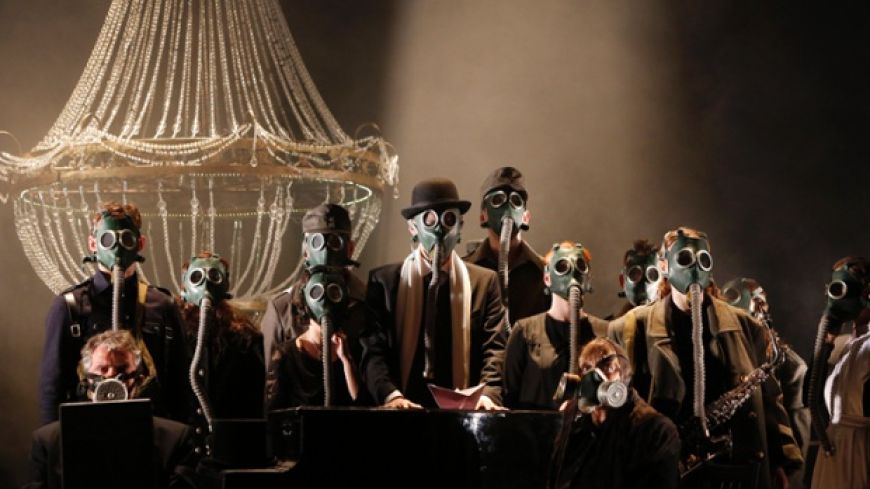
The War is an intense theatrical experience of sight and sound with an abundance of style, but rather confusing content.
Based on Richard Aldington’s Death of a Hero, Nikolai Gumilyov’s Notes of a Cavalry Officer and Homer’s The Iliad, The War focuses on the devastating effects of war in general, with particular reference to the horrific conditions faced by those in the trenches during World War 1.
In the opening scene, set at an opulent party in 1913, a group of artists argued – theoretically - about the costs and benefits of war. All find themselves caught up in the subsequent conflict and one of them, a painter called George, is killed. His close friend, Vladimir, cannot come to terms with his death and a psychiatrist suggests George’s family and friends should engage in a little psychodrama, reliving their wartime experiences through an enactment of The Iliad.
This was where the confusion really began. Performed mainly in Russian but also in Greek, this necessitated the need for surtitles to differentiate between the two – ‘normal’ font indicating Russian speech, and italics indicating Greek. Understanding neither, it was necessary to keep a careful watch of the script in order to understand when the switches were being made, and therefore when the characters were speaking from their own experience or reciting Homer’s.
It was not always easy to make out exactly what was going on, but luckily it was possible to abandon attempts towards greater understanding and lose oneself in the astonishing spectacle of it all. The staging, lighting, costumes and sound was simply stunning. A lot of the dialogue was sung, often hauntingly discordantly, accompanied by accomplished musicians who also took part in the action.
This was a dramatic and powerful piece – albeit strangely disconcerting and bewildering – but at two and a half hours without an interval is not for the faint-hearted.
Ran 9 – 11 August

